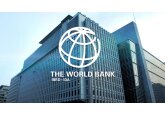
The IMF has provided Moldova with a new tranche of a $175.2 million loan under the existing financing program.
The money was disbursed after the International Monetary Fund's Executive Board completed on June 28 the fifth review of the Extended Credit Facility and Extended Fund Facility-supported program with Moldova and the first review of the Resilience and Sustainability Facility (RSF) -supported program with Moldova. Moldova received access to a total tranche of approximately $175.2 million, which will be used as budget support. Accordingly, the total amount of funds provided under the program will be about $636.5 million. IMF experts note that economic growth in Moldova last year was lower than expected due to the continuing negative impact of Russia's military actions in Ukraine. Moldova's economy grew by 0.7% in 2023, and economic recovery is expected to continue, albeit at a weaker pace than previously forecast. Fiscal policy remains focused on protecting the most vulnerable and supporting the economy. Fund experts believe that although relatively stable growth is forecast over the medium term, short-term risks remain significant and there is a likelihood of the situation getting worse. Overall, the program is progressing as planned despite challenging conditions. In their opinion, the authorities must maintain the strong momentum of reforms, which is extremely important for ensuring the prosperity of Moldova. Following the IMF Executive Board's discussion, Kenji Okamura, Deputy Managing Director of the Fund and Acting Chair, noted that overall the program supported by the Extended Credit Facility and the Extended Fund Facility was progressing as planned, although with some delays in carrying out structural reforms. According to him, although the economic recovery after multiple shocks has been slower than expected, with lower growth rates in 2023 and even lower in 2024, inflation has remained within the NBM target range since October last year and relatively stable medium term growth is projected. “Given that the risks remain significant and the situation may worsen, authorities should continue to focus on working to develop contingency plans and flexible policies, strengthen energy security and implement growth-promoting reforms that will be supported by EU accession efforts,” said Kenji Okamura. He noted that fiscal policy must continue to focus on protecting the most vulnerable and supporting the economy. At the same time, it is necessary to maintain gradual fiscal consolidation to build reserves and maintain acceptable levels of public debt, especially given the expected reduction in external grants in the medium term. In the context of containing inflationary pressures, monetary policy should facilitate the gradual normalization of still high reserve ratios, which will support domestic demand. In conditions of uncertainty, the base rate should remain at the current level. Kenji Okamura welcomed the authorities' intention to maintain existing prudential requirements for shareholders in the banking sector, which is important for ensuring macro-financial stability. He indicated that additional reforms are needed to strengthen the governance, autonomy, transparency and accountability of the National Bank of Moldova. Authorities should continue to work closely with IMF experts to timely implement the measures formulated as a result of the recent diagnosis of the National Bank. These reforms are necessary to ensure sound monetary policy and macro-financial stability. The IMF Deputy Managing Director emphasized that further progress in anti-corruption reforms is necessary to further increase confidence in Moldova's institutions and promote socio-economic development. He welcomed the intention to pass legislation this summer to create a new anti-corruption court, which would be a key event. After the law is adopted, the authorities will have to quickly and effectively ensure the functionality of the anti-corruption court. As noted by Kenji Okamura, the program supported by the Resilience and Sustainability Facility is progressing well. According to him, the authorities have completed all the actions envisaged in the first review of the program and must maintain this strong reform momentum, which is critical to increasing Moldova’s resilience to climate change. // 01.07.2024 — InfoMarket







